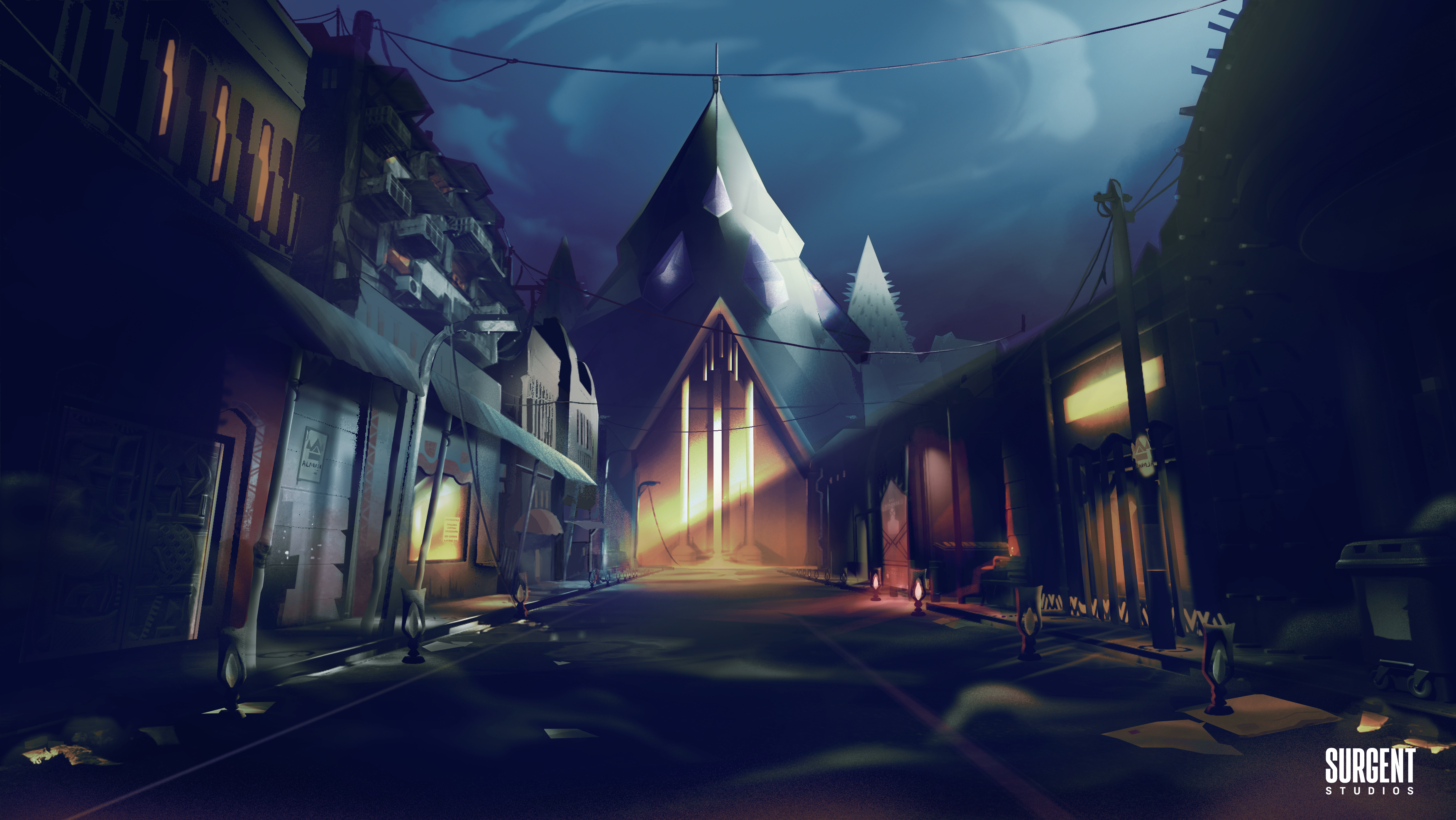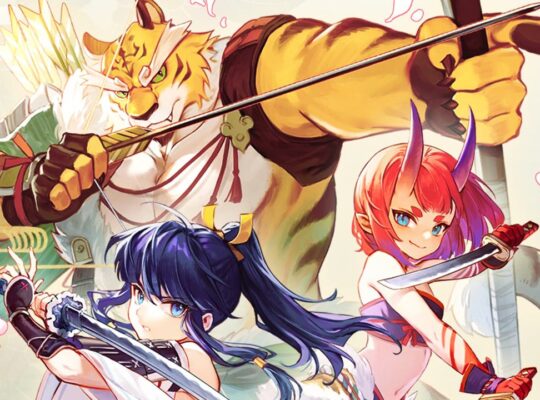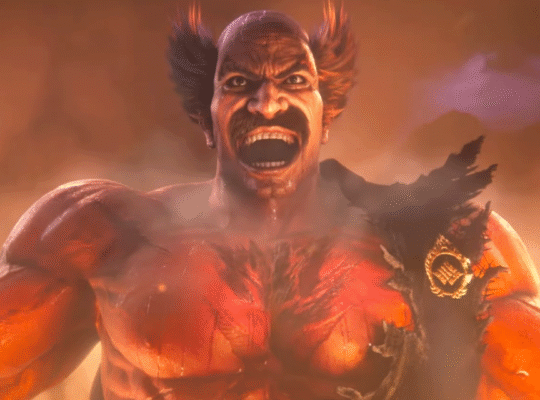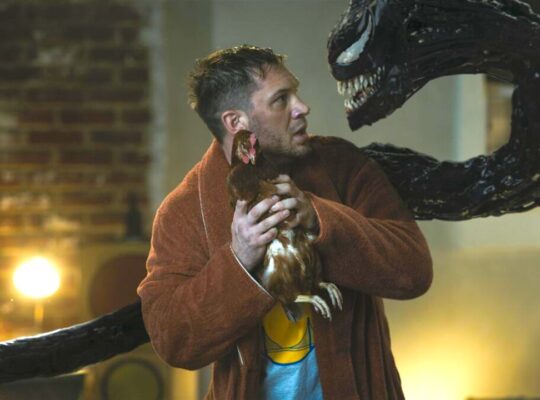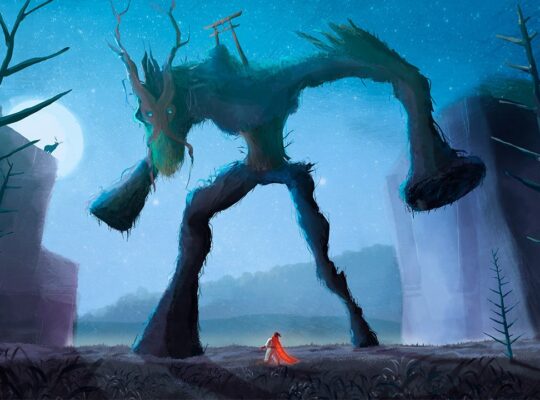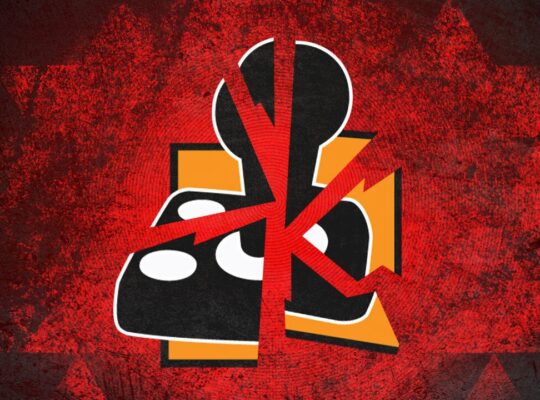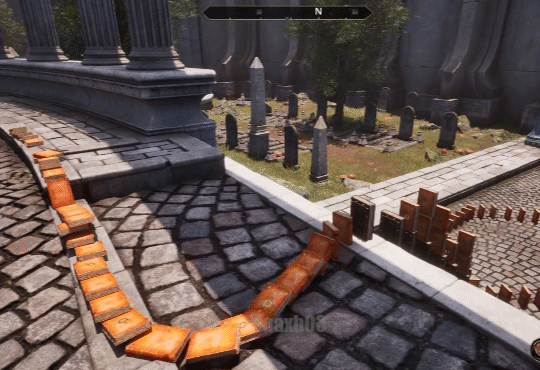The 15-person team behind Tales of Kenzera: ZAU was recently put on notice, following struggles to find funding for their next project. But Surgent Studios isn’t shutting down, its staff aren’t gone forever, and it’s not asleep at the wheel, according to its founder, Abubakar Salim.
They are, he says, “literally raring” to go the second money comes in, like a “cocked gun.”
“We still have so much more to say and so much more to build on,” Salim tells IGN. “And the audiences that we’ve already started to build as well, and the players and the people who want to champion us, they want to hear more…We are ready. We’re so ready. It is just about taking that leap of faith with us.”
Leap of Faith
So what’s the leap of faith? It’s called Project Uso, and it’s a single-player, isometric, Afro-gothic action RPG. You play as a vampiric android containing the spirit of Eshu, the Yoruba god of chaos. As Salim explains, the idea is to explore the idea of two minds in one body through the mechanics of tabletop RPGs. But rather than rolling against a dungeon master, in Project Uso, the player sometimes must roll against themselves.
Project Uso is about the concept of identity, with Uso meaning “face” in Swahili. It’s inspired by Salim’s exploration of his own dual nature in the wake of his daughter’s birth. While ZAU was about who he is without a parent, Salim says that Uso is about asking who he is as a parent.
“As a parent, I always used to find myself being like, I love my daughter, cleaning her dirty nappy. I also want to go see my mates to the cinema, go outside with my mates or whatever. You know what I mean? There’s a battle of freedoms here. And there’s that sense of, do I do this or do I do that? Or even when I’m talking to my daughter and I’m making choices, how do I make sure that she listens to me? Am I strict or am I soft? You are having this battle within you.”
Salim is candid that he’s relatively new to game development. Tales of Kenzera: ZAU was the first game he’s made, having come into the industry from acting. He’s best known in gaming spaces as Bayek in Assassin’s Creed: Origins, and has held a number of other gaming roles since then in addition to his numerous film and TV acting credits (including the most recent season of House of the Dragon). But the last four years of working on ZAU have been a learning experience for him, particularly in how games are typically funded.
“What I’ve learned is that mainly when you get funding for a game, that funding is really there to get you to launch and maybe just a bit more after,” he says. “Maybe. And you are supposed to have your next project turned up and done and signed either before you’ve even launched the first game or maybe just afterwards. That gap in between is frightening because you can see that coming like a train.”
The COVID-19 pandemic exacerbated this, he explains. While gaming companies briefly poured funding into new projects, there’s been an industry-wide wake-up call in the last two years resultings in mass layoffs, financial struggles, and funding drying up. As a result, Salim explains that companies have become far more cautious in the bets they’re willing to make on new games. That includes EA, whose EA Originals label published Tales of Kenzera: ZAU but which hasn’t picked up Salim’s next project.
Salim says he understands, but doesn’t agree that it’s the best strategy. On the contrary, he thinks now is the time for companies to take risks.
“Why would I, as a player of Call of Duty or as Fortnite, want to leave that to go to something new when I’ve already established myself in this space?” he says. “I totally understand that. It’s like going to your favorite cafe or going to your favorite restaurant. The way that you entice people to go to somewhere different and somewhere new is by doing something different or something new, by being bold, by being creative.
“I think a great example of this is Animal Well. You look at Animal Well and it’s completely unexpected. You didn’t know what you were getting into. And that was a risk that was taken by a YouTuber. I think we need to see more of that from people in positions of power and in positions of stability.”
Bouncing Back
Surgent Studios and Salim have had a rough time finding funding for Project Uso, but there’s been another layer to their struggles: harassment. Tales of Kenzera: ZAU has found itself the target of ongoing, racist attacks online, largely targeting the game for its Black protagonist and its Bantu inspirations. But none of this has discouraged Salim from pitching Project Uso. On the contrary, he’s of the belief that it’s important to address such attacks directly.
“I think that the anti-diversity, equity, inclusion sort of movement, it’s about not having the right information,” he says. “I think we are seeing a lot of gaps being filled with conspiracy theories, like ticking boxes and all this sort of stuff, which isn’t actually true when you look into it. And that dialogue needs to happen.”
Salim acknowledges that directly speaking with harassers can be dangerous, and isn’t for everyone. Both parties, he says, have to come to the discussion in good faith, and harassers often don’t. But he believes such engagement can change hearts and minds, and is worth doing for those able. And on a higher level, he adds, companies have a responsibility to take even firmer action against harassment.
“There is definitely a fear of having a stance, I feel, when it comes to businesses. They kind of want to be neutral, which again, totally understand. But there is a level where it goes a bit too far…We’re in a time right now where someone can post a YouTube video and say my garb is like a Rafiki outfit and call my studio Spear-Chucker Studios, and I don’t know whether there’s going to be repercussions or not. I have to call them out on it. And it’s like, come on. It should be down to the [company], be it YouTube, or be it Twitch, or be it even Valve, for example, to be like, ‘Yeah, that’s not cool. Get out.’”
Though Surgent Studios is currently in a holding pattern with Project Uso, Salim has faith that the industry will bounce back from its rough patch, and he’ll bounce back with them. He believes that while video games are both art and business, they are art first and foremost, and “the arts always survive.”
“The beauty though, about games, I feel, is that the conversation and dialogue is a lot more open,” he says. “And so I feel that bouncing back can happen sooner and bolder and more brilliant than any other art form. And that’s what gets me, that’s what inspires me. That’s what kind of drives me to continue going on even after everything that’s happened. Because it’s a beautiful space to be in. It really is. And don’t get me wrong, the amount of times I’ve wanted to be like, ‘I should just stay as an actor, man. I’m in a big TV show. I should just be really comfortable here and just doing my thing here.’ But there is something inside me that just says, ‘Nah, man, I wouldn’t be happy. That’s just not enough.’”
Rebekah Valentine is a senior reporter for IGN. You can find her posting on BlueSky @duckvalentine.bsky.social. Got a story tip? Send it to rvalentine@ign.com.


